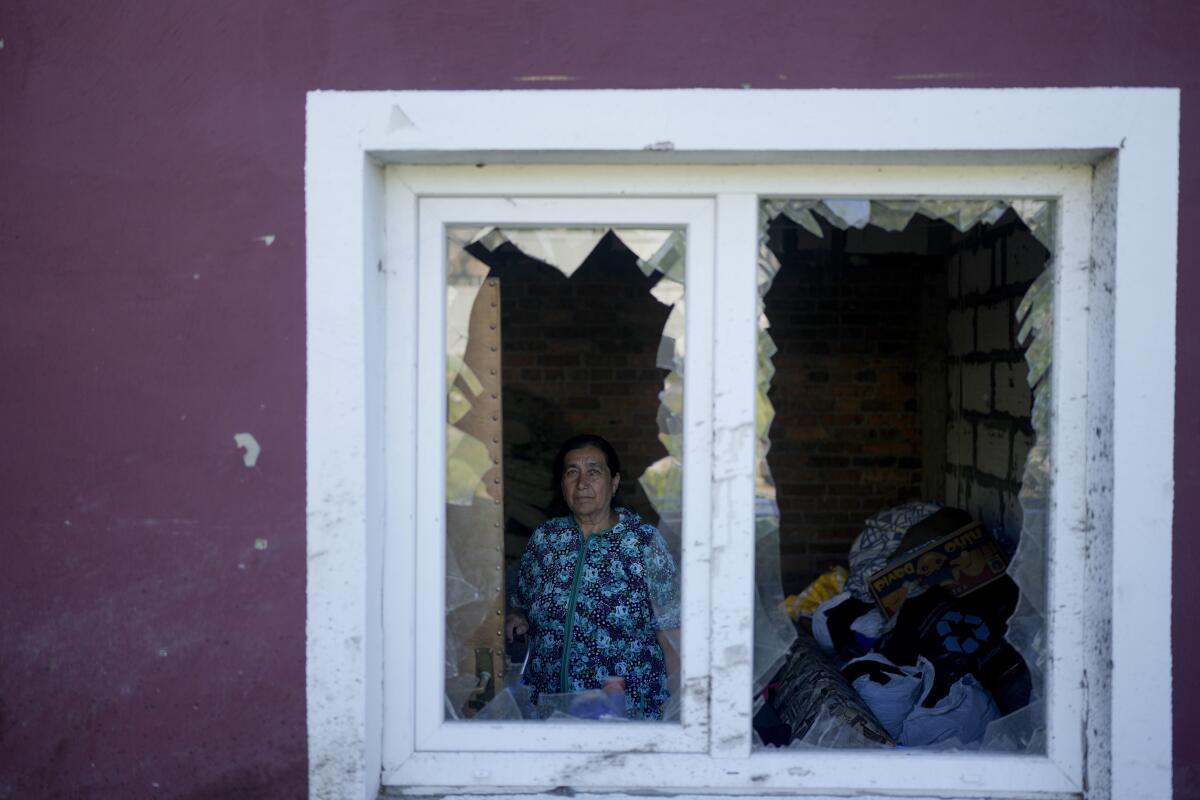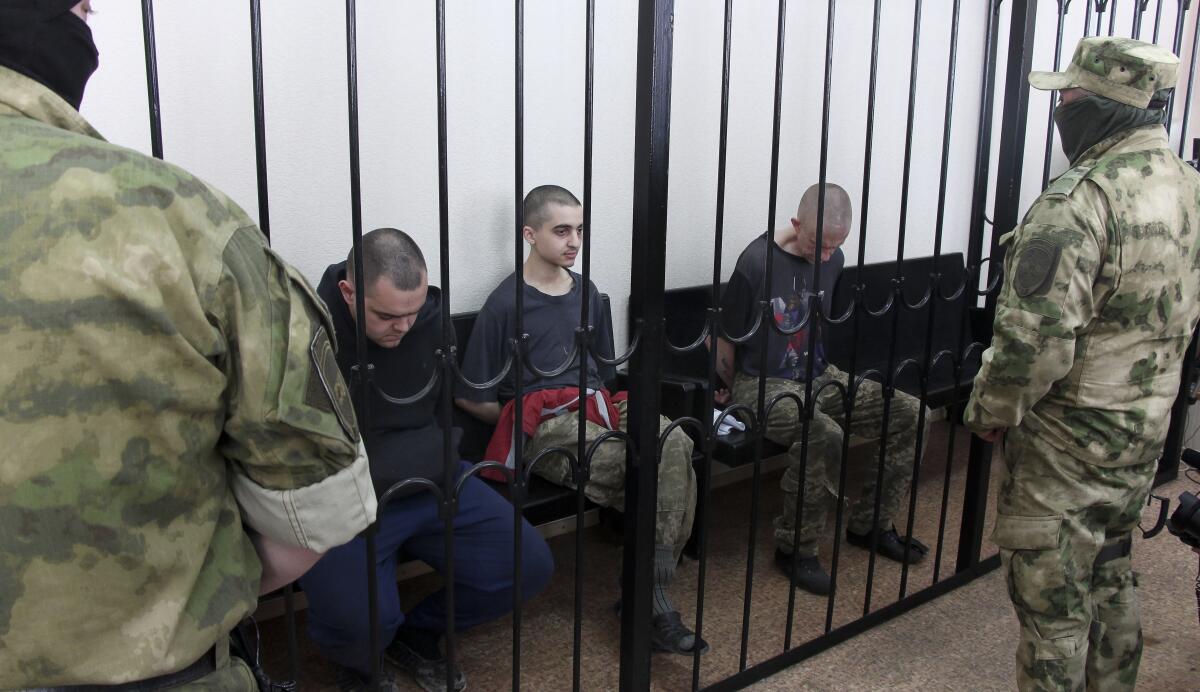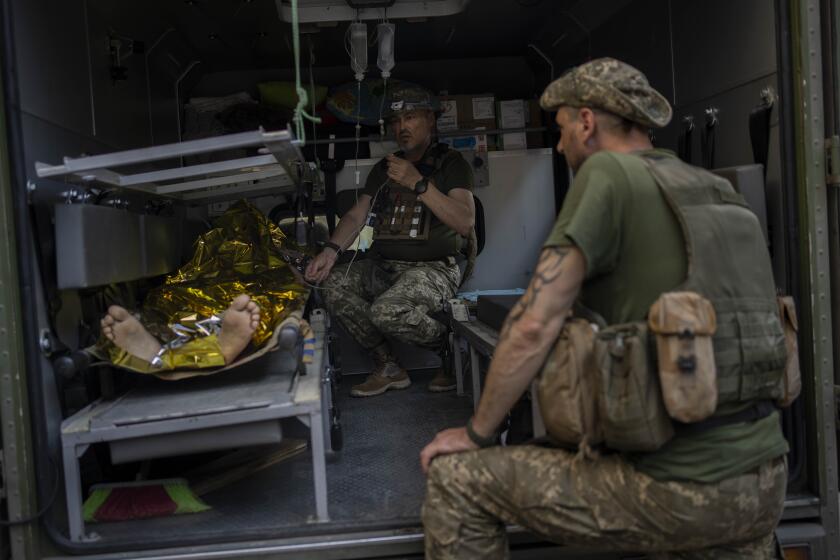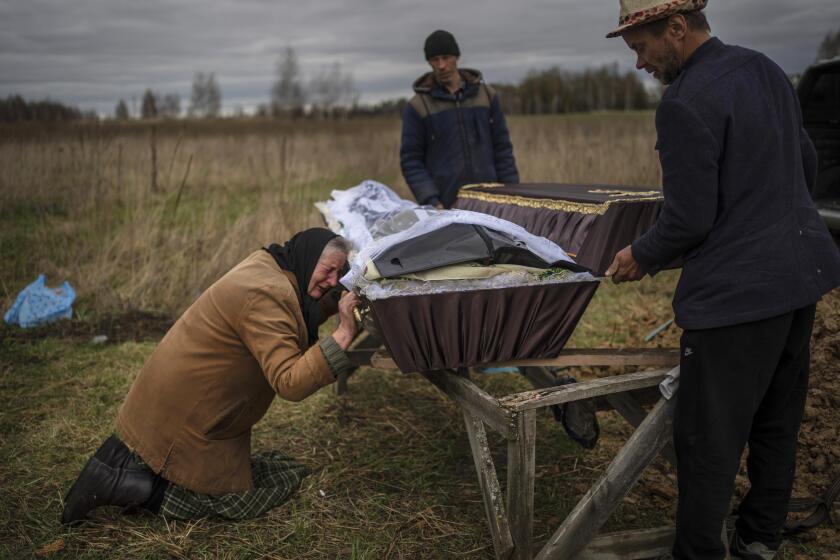Ukraine says up to 200 of its soldiers die daily as battle in east intensifies

- Share via
KYIV, Ukraine — Up to 200 Ukrainian soldiers are being killed every day in Russia’s military onslaught, according to a presidential advisor — and only more and more advanced Western weaponry will turn back the Russian offensive, reduce the casualties and force Moscow to the negotiating table.
Mykhailo Podolyak, an aide to Ukrainian President Volodymyr Zelensky, told the BBC in an interview aired Thursday that the daily loss of 100 to 200 soldiers was the result of a “complete lack of parity” between Ukraine and Russia, which has “thrown pretty much everything non-nuclear at the front” in its bid to advance in Ukraine’s eastern Donbas region and beyond.
Zelensky had recently put the daily death toll at up to 100, but Podolyak said it had grown. Ukrainian officials have pointed at the mounting losses to add to the urgency of their demand for more Western weapons, which have been critical to the country’s unexpected success in holding off the larger and better-equipped Russian forces.
After a bungled attempt to overrun the capital, Kyiv, in the early days of the war, Russia shifted its focus to the Donbas region of coal mines and factories in the east. But its progress there has been plodding.

Podolyak said delivery of state-of-the-art artillery systems would not only curb Ukraine’s death toll but would also help its forces reclaim seized territory.
“There’s something really important that our partners need to understand, and that’s until Russia suffers a serious military defeat, no form of dialogue will be possible, and they will continue to be able to try and take parts of our country,” he said.
Podolyak also addressed Western fears that Western rocket launchers in the hands of Ukraine’s forces would be used to strike targets inside Russia and potentially escalate the conflict to a wider conflagration, saying that “it won’t happen.”
The slog in the Donbas continued Friday, with a regional governor saying forces are fighting “for every house and every street” in Severodonetsk, the recent focus of clashes.
As war victims are collected, fears of a global food crisis escalate because millions of tons of grain have piled up in the besieged country’s silos.
Severodonetsk is in the last pocket of the Luhansk region in the Donbas that has not yet been claimed by Russia.
Luhansk Gov. Serhiy Haidai told the Associated Press that Ukrainian forces retain control of the industrial zone on the edge of the city and some other sections.
He said Russian artillery barrages have pummeled a part of the city that has now been turned into a “scorched earth” landscape. He added, however, that Ukrainian forces rolled back a Russian attempt to send infantry into the city.
Zelensky said late Thursday that, while the situation in the Donbas is static, Ukrainian forces had made some progress in the Zaporizhzhia region in the south, where the Ukrainian troops have been able to “spoil the plans of the occupiers.” He gave no specifics.
Numbers help tell the tale of the death, destruction and economic havoc caused by Europe’s worst armed conflict in decades.
Meanwhile, the British government said Russia must take responsibility for the “sham trial” of two Britons and a Moroccan who were sentenced to death for fighting against Russian forces in Ukraine.
Britons Aiden Aslin and Shaun Pinner and Moroccan Brahim Saadoun were convicted by a court Thursday run by pro-Moscow separatist authorities in the self-proclaimed Donetsk People’s Republic, which is not recognized internationally.
Separatist authorities argued that the men were “mercenaries” not entitled to the usual protections accorded to prisoners of war.
Aslin’s and Pinner’s families have said that the two men were long-serving members of the Ukrainian military. Saadoun’s father told a Moroccan online newspaper that his son is not a mercenary and that he holds Ukrainian citizenship.

British government minister Robin Walker said Friday that it was “an illegal court in a sham government” but that London would use “all diplomatic channels to make the case that these are prisoners of war who should be treated accordingly.”
British Foreign Secretary Liz Truss is due to speak to her Ukrainian counterpart Dmytro Kuleba later Friday about the case. Britain has not announced any plans to speak to Russian officials, and it does not recognize the self-proclaimed Donetsk republic and will not officially contact the authorities there.
Russian Foreign Ministry spokeswoman Maria Zakharova said that the ministry had not received any specific appeals about the men from Britain and that therefore “we can make an unambiguous conclusion that until now the fate of these citizens was not of interest to London.”
More to Read
Sign up for Essential California
The most important California stories and recommendations in your inbox every morning.
You may occasionally receive promotional content from the Los Angeles Times.











